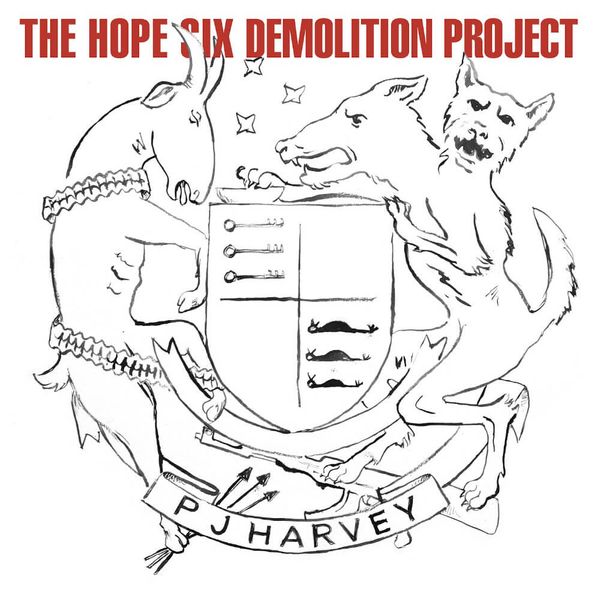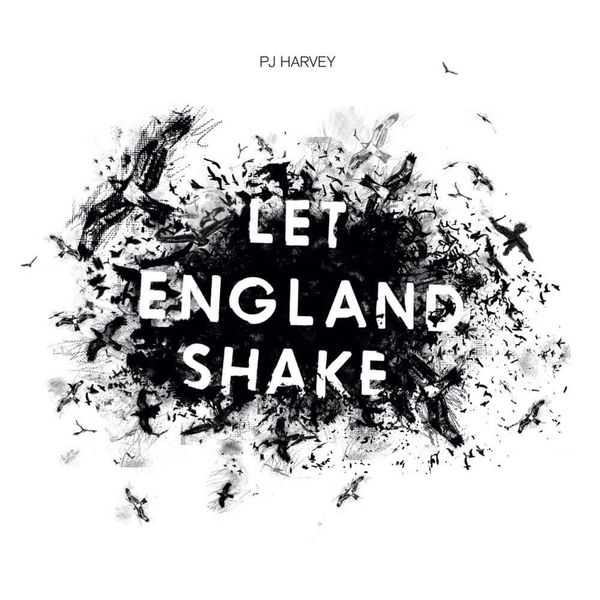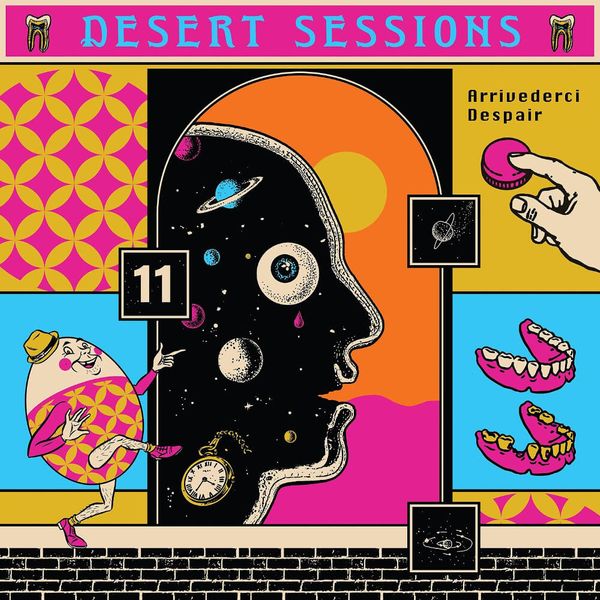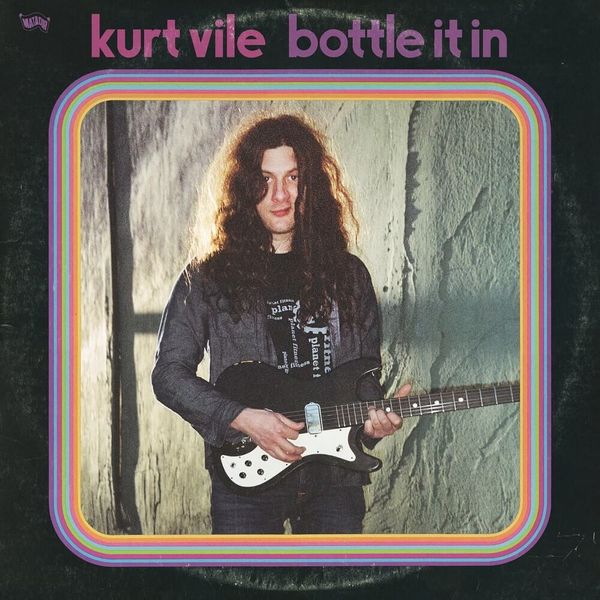The Hope Six Demolition Project
PJ Harvey

Essential Tracks
- Dollar, Dollar
Favourite Tracks
- The Ministry of Defence
- The Ministry of Social Affairs
André
In a catalogue filled to the brim with vitality and emotion, 2011’s Let England Shake proved to be one of PJ Harvey’s most powerful works, in spite of her age and mounting maturity. It was crafted expertly and stands as one of the best releases of the decade so far.
The Hope Six Demolition Project feels very much like a capacious sequel; expanding its scope beyond a single nation and governed by a political commentary that seems confused by its own message. It neither sinks nor soars, and fails to make any sort of impact as a result. Given Let England Shake was such a mature and engaging work, this comes as a sizeable disappointment, and feels like PJ Harvey’s sloppiest work to date.
This is arguably the weakest lyrical showing in her entire career. Her words are either overly literal or too open-ended—only occasionally does she find the poetic balance. Whereas Let England Shake addressed cultural and political issues in a profound and timely way, Hope Six sees Harvey improperly preaching to her audience. What audience this is, and what this sermoning achieves, remains a mystery. Such difficulties would not be judged so ruthlessly if the music itself was enjoyable to listen to, but the record is also mixed in such a misguided manner that it becomes difficult to separate the high points from the blander ones inside the murky compilation.
Hope Six intentionally steers away from the gloss and clarity of Let England Shake and attempts instead to capture the aesthetic of Harvey’s earlier material, despite not possessing the spirit and raw intensity of those excellent records. To Bring You My Love — in my eyes her finest work — had serious grit, whilst this is flimsy even at the best of times. It’s a decent record, but barely sounds finished, and it’s a huge disappointment to encounter such warped artistic vision from someone as exceptional as PJ Harvey.
Favourite tracks //
- The Ministry of Defence
- Dollar, Dollar
- A Line in the Sand
Fred
This never really hits the mark. Although The Hope Six Demolition Project does have its moments, most of the time spent between them just kind of happens. A good deal of discernable quality throughout — from toe-tapping blues samples, to irreverent ’60s style rock, to smoky folk melodies — is suffocated by the album’s sloppy, murky sound. What little surviving crispness there is isn’t striking enough to make the experience anything more than frustrating. Whether the album’s thick combination of recording and mixing was a deliberate artistic decision or not I’m not sure, but it doesn’t work.
The ingredients going into tracks like “The Ministry of Social Affairs” should really be resulting in something superb, and they don’t. And that happens consistently. It’s a bizarre work to describe. The essence of The Hope Six Demolition Project is ice cool folksy rock that’s been left out in the sun and started to melt; formless, mushy, and all a bit disappointing. There’s an excellent concept/social commentary album in Hope Six somewhere, but most of what we’re presented with is its gloop.
Favourite tracks //
- The Ministry of Defence
- The Ministry of Social Affairs
- Dollar, Dollar
Andrew
The Hope Six Demolition Project has rough, bluesy, improvised aesthetic which, on paper, ought to be an interesting return for PJ Harvey. In practice however, it doesn’t play out as hoped. Some great hooks and intriguing instrumentation make for some gems, with “A Line in the Sand” piquing curiosity with it’s twinkling guitar and strong sax lines which are only further demonstrated as “The Ministry Of Social Affairs” erupts during the latter half.
In between these though, many of the tracks pass by without much notice, and much of the album proves that a rough production style doesn’t mix well with a group of instruments as large as this release has amassed, with some passages often turning into instrumental hubbub below Harvey’s vocals. One of the places where the style does work is in the closer, “Dollar, Dollar”, which strips back much of the instrumentation, letting each instrument take it’s own space in the mix. There’s a stark difference to be heard between this and lesser tracks on the album.
To make things worse, in a sense, I have little else to really take issue with on this release, but the production does make such a difference, taking away bite that could probably have made a track, and wearing out catchy hooks more quickly by removing some of the grit they may have had in previous albums. There are certainly some strong tracks here, but not enough to make for a similarly strong overall release.
Favourite tracks //
- Dollar, Dollar
- The Ministry of Social Affairs
- A Line in the Sand














